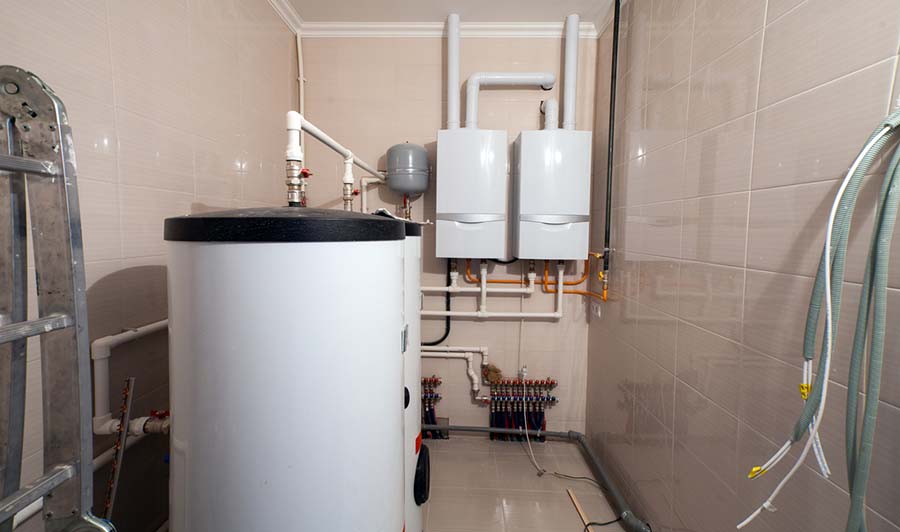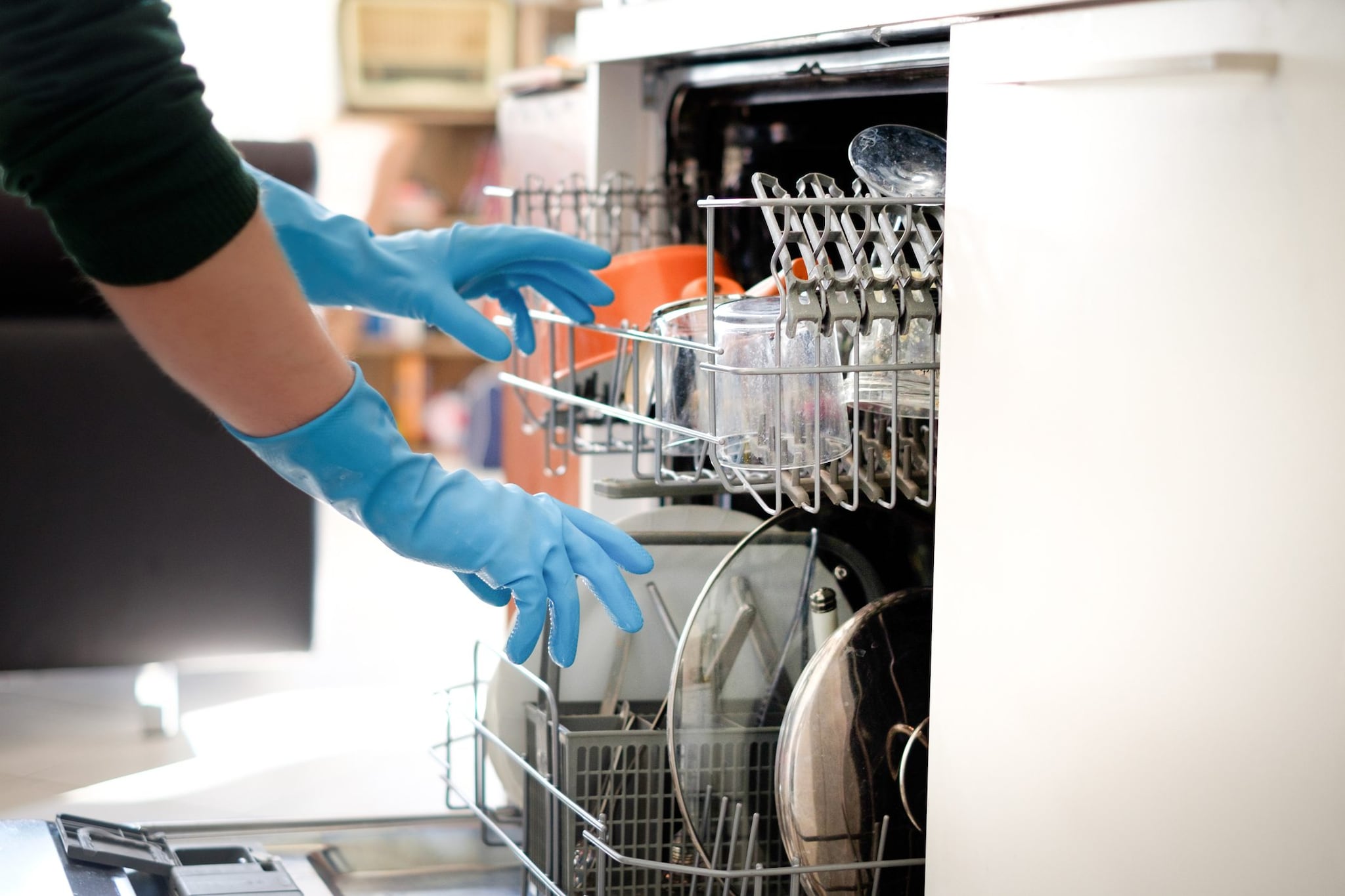The article listed below pertaining to What Would Cause My Electric Water Heater to Stop Working? is extremely interesting. Don't miss it.

Lots of contemporary houses utilize an electric water heater for their furnace, as a result of its ease and also simplicity of use. However, just like any other electric appliances, troubles might develop with its usage, unexpectedly. It can be actually irritating to get up to a cold shower instead of a hot one or having your bathroom with water that isn't hot enough or even as well hot. Whatever the situation may be, hot water heater issues can be quite aggravating. Luckily, we've made a list of feasible services to your hot water heater problems. There are a number of elements that might cause most of these issues, maybe a problem with the power supply, the electrical burner, or the thermostat. Before doing anything, guarantee you shut off the primary power supply for safety and security. Whatever the trouble is, getting it taken care of must not posture too much of a problem if you comply with these actions:
Check Your Power Supply:
As standard as this might appear, it is really essential. Without adequate power, your hot water heater will certainly not function. So the first thing to do when your water unexpectedly stops working is to confirm that it isn't a power problem. Examine if the fuse is burnt out or the circuit breaker stumbled. If the circuit breaker is the concern, simply transform it on and off again. Change any kind of damaged or worn-out fuse. Examine the home appliance with power after these adjustments to see if it's now functioning.
Examine the Burner in the Water Heater:
If it's not a power problem, then attempt having a look at your burner if it is still working. Evaluate each of your heating elements to make sure the issue isn't with any of them. If any of them is malfunctioning, change that part and then examine whether the hot water is back on.
Inspect Your Thermostat:
If your water heater still isn't functioning or the water coming out isn't hot sufficient, you might need to inspect the temperature level setups on your top thermostat. Ensure the breaker is turned off before doing anything. Open the gain access to panel and also press the red button for temperature level reset over the thermostat. This need to help heat the water. Transform the circuit breaker back on as well as examine if the trouble has been fixed.
Call A Specialist:
If after replacing all defective parts and resetting your temperature level, the hot water heater still isn't functioning, you might require to call an expert plumber for a professional viewpoint. The issue with your heating unit could be that the cold and hot taps have been changed or it may be undersized for the amount of warm water required in your home. Whatever the situation might be, a specialist plumber would certainly assist fix the problem.
Conclusion
Water heater troubles are not always major. A lot of them are due to minor issues like a blown fuse or damaged burner. Replacing the malfunctioning components ought to suffice. However, if you are still not able to resolve the trouble, give a call to your closest plumber to come to get it fixed.
Common Water Heater Issues and What You Should Do
What Type of Water Heater Do You Have?
Before we begin it’s first important that you identify the type of water heater you have on your property. There are two main types of water heaters out there: conventional and high efficiency.
Both of these types of products typically use either gas or electricity to heat power. There are also solar water heaters that use a thermal collector on the roof or yard to heat the water.
While these models are not as common, they can cut heating costs in half. In this article, we will focus on conventional and high efficiency.
How Do My Electric and Gas Water Heater Work?
Though they look similar, electric and gas water heaters work very differently. It’s important to know their basic function because often problems can be specific to the heating source.
In the electric model, a thermostat on the side of the machine detects the temperature of the water in the tank. When the temperature needs to rise electricity flows to a heating element suspended in the water.
Gas models also use a thermostat device — typically with a mercury sensor at the tip and an additional sensor called a thermocouple. The thermocouple detects whether the pilot light is on and controls the flow of gas.
When the thermostat drops below the appropriate level gas is released which becomes ignited by the pilot light. The flame heats the bottom of the water tank which causes hot water to rise and cold water to drop.
This natural circulation continues until the water reaches the desired temperature. Then, the thermostat triggers the gas control valve to shut off the flow of gas.
What Are the Most Common Issues and How Do You Fix Them?
n this section, we’ll go over some of the more common problems that people deal with when their water heater starts acting up. Keep in mind that some problems, like a broken pilot light, are specific to gas water heaters.
Also, remember that the best defense against water heater issues is regular maintenance. Check out some of these great tips for improving the lifespan of your water heater.
Not Enough Hot Water
This problem is common if you live in an apartment or a house with a lot of people. Too many people use the hot water supply in the tank and the machine struggles to produce more in a timely fashion.
There’s a variety of solutions to this problem, but an easy method is simply to adjust the temperature dial on your heater and wait thirty minutes.
If you have an electrical water heater, then a power surge caused by the device may cause the circuits to trip.
You should contact an electrician quickly if this issue keeps happening — it means wiring issues are causing the machine to draw more power than it needs. You may also want to try draining your water heater.
The process of draining removes the hard water sediments that cause your machine to run less efficiently. If you want a full walk-through of how to drain water your water heater tank, then make sure to read our article before you begin.
If none of these solutions fix the problem, then the issue likely lies in a malfunction component — likely a pressure relief valve or heating element.
Changing Water Temperatures
Often it’s a joke that some showers have two temperatures: scolding hot and ice cold. Unfortunately, this common feature can be a symptom of a bigger problem.
If you notice this temperature change when you shower or do the dishes, then you should check the thermostat on the side of your water heater. First, make sure it’s set to your desired temperature.
If it still exhibits drastic temperature changes, then you may need to replace the thermostat or the heating unit inside the product. The problem may also lie in the size of the product. Remember that tanks should hold roughly 20 gallons of water per person living in the house.
A Leak in the Water Heater
A water heater leak can cause serious water damage to the floor and electrical components near the device. Remember that you should always turn off the gas or electricity and let the device cool down before inspecting for a problem.
You may be able to fix the leak by tightening screw and pipe connections as these are common causes of minor leaks. However, if you notice a substantial leak at the base of the water heater, then you should contact a technician to inspect and replace it.
Rumbling Sounds
Rumbling sounds are a sign of a serious water heater issue. Unusual sounds may come from burning sediments or malfunction heating components. If you think you hear your heater boiling, then you should turn it off immediately.
This symptom is a sign of building pressure in your tank which could cause it to explode. You can likely solve this problem by draining your tank and clearing out any sediments. However, if the problem persists you may want to call a professional.
Rusty or Smelly Water
If your water smells then there is likely rust or bacteria in your water tank. These problems can cause orange discoloration and a smell like rotten eggs. However, you should first make sure that your tank is the issue and not the water source itself.
Run cold water and see if the smell persists. If the smell only comes from hot water, then the problem is the water heater. If not, then it’s the water source. If the problem comes from your tank, then it’s likely a malfunctioning anode rod.
An anode rod is responsible for cleaning any bacteria from the tank, so this is the most likely symptom. Unfortunately, changing an anode rod requires extensive knowledge of the system. As such, you will likely need the help of a professional.
Poor Water Flow
Changes in the water pressure that comes out of your shower or sink is likely a sign of sediment buildup at the bottom. Follow our previous advice — drain the tank and flush out any of the sediments.
If the problem persists, then you’ll need to check the pipes around your device. Hire a professional plumber to clean or replace the pipes around the water heater.
No Pilot Light
Gas water heaters require a pilot light to ignite the gas that warms the water. If your pilot light is out, then try reigniting it by repeatedly switching the ignitor switch. If your pilot light continues to go out, then it’s a symptom of a larger problem.
You can first try cleaning it — sometimes dirt or grime can buildup and snuff out the spark.
However, the problem can also cause things like malfunctioning thermostats, broken gas valves, or air in the gas line. First, try cleaning it and if it still goes out, then troubleshoot the various parts and replace whichever one malfunction.
https://happyhiller.com/blog/common-water-heater-issues-and-what-you-should-do/

Do you enjoy reading about How to Troubleshoot and Repair an Electric Water Heater? Leave feedback below. We will be pleased to listen to your reactions about this write-up. In hopes that you visit us again in the future. Sharing is caring. Helping people is fun. Many thanks for your time. Don't hesitate to check our site back soon.
Dial, stress less!



